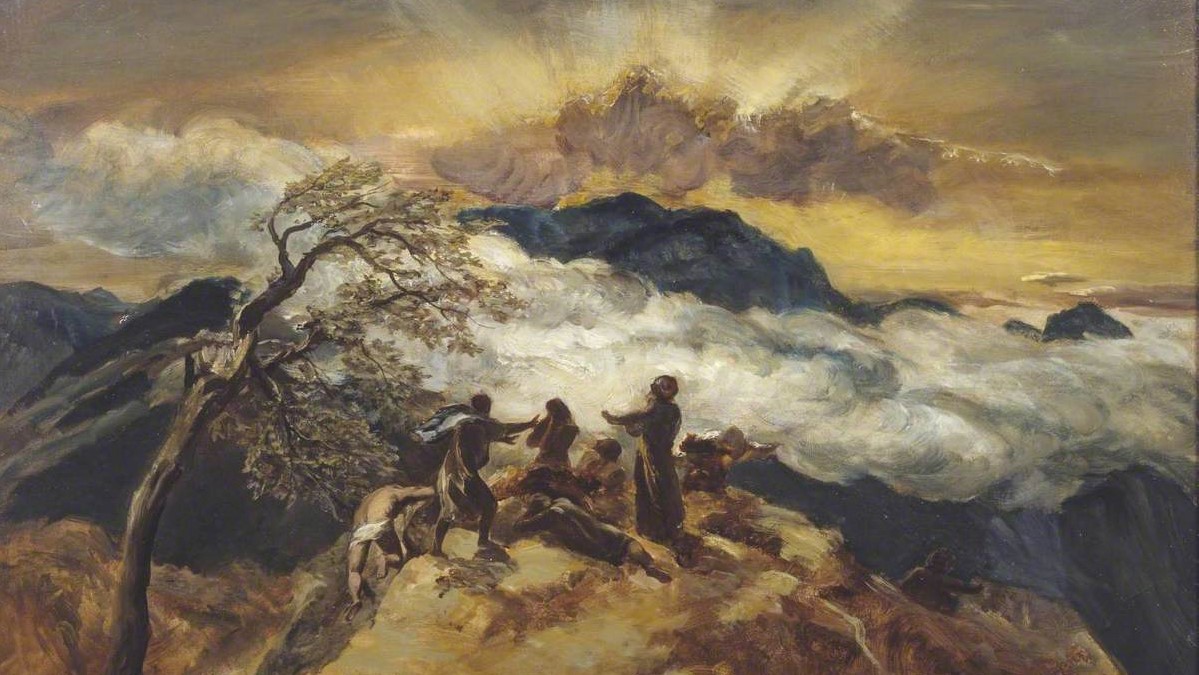
Ezekiel 2:1-5
Proper 9B
1 He said to me: O mortal,A stand upB on your feet,C and I will speakD with you.
2 And when he spoke to me, a spiritE enteredF into me and setG me on my feet; and I heardH him speaking to me.
3 He said to me, Mortal, I am sendingI you to the peopleJ of Israel,K to a nationL of rebels who have rebelled against me;
they and their ancestorsM have transgressedN against me to this veryO day.P
4 The descendantsQ are impudentR and stubborn.S I am sending you to them, and you shall say to them, “Thus says the LordT God.”U
5 Whether they hear or refuseV to hear (for they are a rebelliousW house),X
they shall knowY that there has beenZ a prophetAA amongBB them.
Image credit: “Sketch for ‘Vision of Ezekiel’” by Paul Falconer Poole, 1875.
